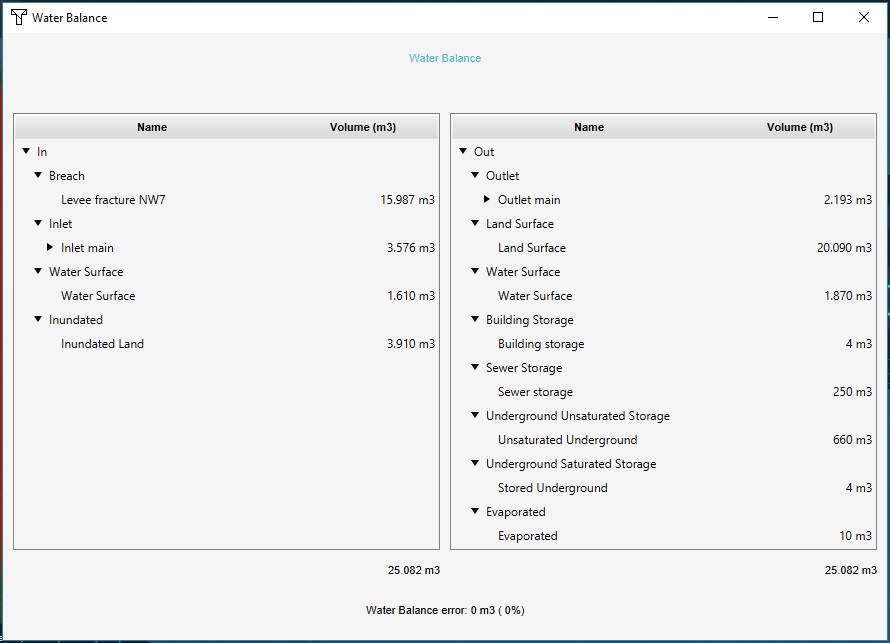Water balance (Water Overlay): Difference between revisions
No edit summary |
No edit summary |
||
| Line 65: | Line 65: | ||
| Inundated | | Inundated | ||
| [[Inundation area (Water Overlay)|Inundation area]] | | [[Inundation area (Water Overlay)|Inundation area]] | ||
| | | [[Surface last value result type (Water Overlay)|Surface last value]] | ||
| Land Surface | | Land Surface | ||
| | | | ||
| | | [[Surface last value result type (Water Overlay)|Surface last value]] | ||
|- | |- | ||
| Inlet | | Inlet | ||
Revision as of 09:41, 26 January 2024
During the simulation, a tally is kept of the total amount of water which the hydrological model is initialized with, how much flows in and out, and how much is left in various layers when the simulation completes. The overview of these tallies is known as the water balance, and can be accessed after the calculation has completed. It will display water categorized into input (where it was initialized and/or how it entered the hydrological system) and output (where in the hydrological system it ended up, or through which path or process it left the hydrological system).
The following entries are displayed:
| Input | Configuration | Result | Output | Configuration | Result |
|---|---|---|---|---|---|
| Water surface | Water area, Surface level prequel | Water surface | Surface last value | ||
| Rain | Rain m, Rain areas | Evaporated | Evaporation m | ||
| Building Storage | Water storage m2 | ||||
| Sewer Storage | Sewer storage | ||||
| Sewer Out External | Sewer pump speed | ||||
| Bottom in | Bottom Pressure and Resistance | Bottom Out | Bottom Pressure and Resistance | ||
| Breach | Breach | Breach Out | Breach | ||
| Inundated | Inundation area | Surface last value | Land Surface | Surface last value | |
| Inlet | Inlet | Outlet | Outlet | ||
| Saturated Ground Storage | Saturated Ground Storage | ||||
| Unsaturated Ground Storage | Unsaturated Ground Storage |
For completeness, a total for both water input and output is displayed, as well as a check on any eventual water loss in the system. Depending on the size of the project area and the amount of water flowing through various cells, there may be a minor difference between the input and output due to numerical rounding. In these cases the difference should amount to less than a tenth of a millimeter of water per cell in the calculation.





